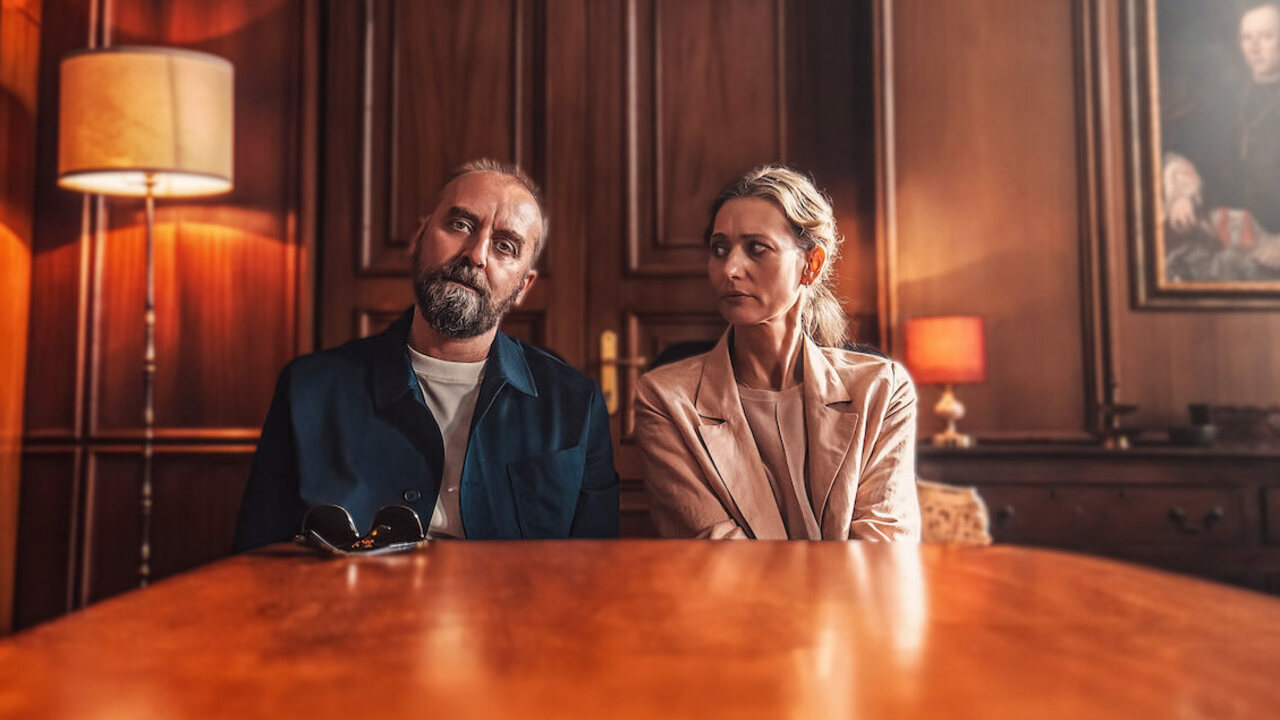
Divorce (aka, Rozwodnicy), directed by Michał Chaciński, is the kind of film that holds you in its grasp firmly while you are watching it. However, as soon as it's over, you stop feeling passionate about it. I certainly have not started hating the film. It's just that if you had asked me about Divorce while I was watching it on Netflix, I would have exclaimed, "I am loving it!" Now, my sentiment is closer to "I liked it." The movie strangely feels distant after a while. It turns into an old, wonderful memory that no longer excites your senses but makes you smile. One of the problems of doing film criticism nowadays is that many people have developed an aversion towards reading, so they just impatiently ask me if they should watch a film or skip it. If you are a part of this crowd (I hope you are not), I will tell you what you want to hear from me: Go watch Chaciński's Divorce. It's a very good film. Let me cross my fingers now and hope others will continue reading.
Written by Chaciński and Łukasz Światowiec, Divorce breaks the rigid societal rules and challenges the religious authorities without self-righteous rage or preaching. It starts with the issue of Jacek (Wojciech Mecwaldowski) and Malgosia (Magdalena Poplawska) filing for a divorce at a church court but then expands to include other dictatorial troubles like Malgosia holding her daughter back from following her dream and Krystyna (Dorota Piasecka) not allowing the orchestra to play any upbeat music. Chaciński infuses his movie with a superb comic touch that's light as well as effective. He doesn't heavily underline his points. In fact, there is no underlining. He allows his actors, his story, to do all the lifting. Not a single scene overstays its welcome. Nobody breaks into an educational monologue to teach the audience. The church's dominion over someone's personal matter is displayed through the lens of comedy, though this view doesn't undermine the ridiculous nature of figures working in such a stiff organization that elevates itself with a posture of morality.
Jacek and Malgosia have found the perfect partners with whom they want to spend their lives. Malgosia is married to Andrzej (Tomasz Schuchardt), and Jacek is engaged to Monika (Michalina Labacz). Jacek and Malgosia were young when they got married. They were unaware of the responsibilities that come after intense sex and celebratory drinks. Malgosia became responsible after the birth of their daughter, but Jacek couldn't let go of his young, carefree self. Hence, these two characters got separated, and when we see them in the film many years after the separation, they seem calm and comfortable with their new partners. They don't feel regret. Jacek and Malgosia have moved on from their old relationship and are now good friends. The church, however, fails to understand this concept. The Fathers view marriage as a sacred bond that should not be broken. What's so great about being in a relationship that was formed through an immature decision? Is it okay to suffer in a marriage devoid of love and respect? Divorce raises these questions without exertion. Instead of bringing them into the foreground in a sermon-like manner, it lets them gently flow into your head.
Chaciński beautifully weaves a comedic tone into the fabric of his film. Simple actions like a coffee machine pouring coffee or a host saying "blast" instead of "bless" thrum with a pleasurable comic energy. Chaciński's low-key style could have easily slid towards directorial indifference, but the fact that it doesn't proves that he has a solid hold on his film. Chaciński exposes the bitter waves of drama with a similarly understated elegance - nobody complains or screams, but the characters' pain and jealousy are felt with a sharp pinch. At one point, after an all-night party, Jacek casually flirts with Malgosia by proposing sex in a back alley. The suggestion is both playful and erotic, and you see why these two characters were once married. Poplawska's face stays with you long after the end credits. There is something about her that's mysteriously fascinating. She seems to be sharing her inner thoughts with you when you observe her on the screen. She responds openly to everything, and her Malgosia has a strong spirit. The character exudes hope as well as vulnerability - she never succumbs to defeat.
Every frame of Divorce resembles a painting. The colors are soft, the lights fall gently, and the characters, with their velvety outline, easily blend into their surroundings. The images have a smooth, silky tenderness that makes them pleasing to our eyes. This aesthetic further sucks you into the film. It also gives an ethereal glow to that last scene (a wedding). The white colors look angelic. The problems are solved happily, unfussily, so Divorce earns this "heavenly feeling." Everything looks appropriate - not a single element appears jarring. Maybe because the texture is very light, the movie begins to evaporate from your mind as soon as you finish watching it. Nevertheless, this shouldn't stop you from seeking it out on Netflix.
Final Score- [7.5/10]
Reviewed by - Vikas Yadav
Follow @vikasonorous on Twitter
Publisher at Midgard Times
Hi Everyone, after a due consideration, we have decided that we will be open for donations to help us in managing our website. We will be greatful for any kind of amount we receive. Thanks!
— Midgard Times 🎬 (@Moviesr_net) January 4, 2026
PayPal- [email protected] pic.twitter.com/DlNNz5Npm5
Get all latest content delivered to your email a few times a month.
Bringing Pop Culture News from Every Realm, Get All the Latest Movie, TV News, Reviews & Trailers
Got Any questions? Drop an email to [email protected]